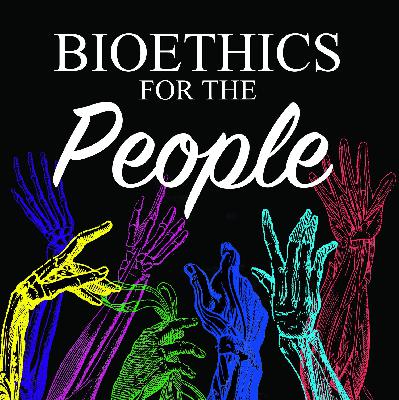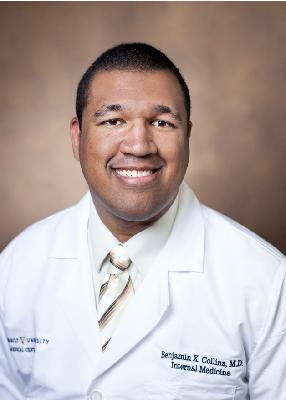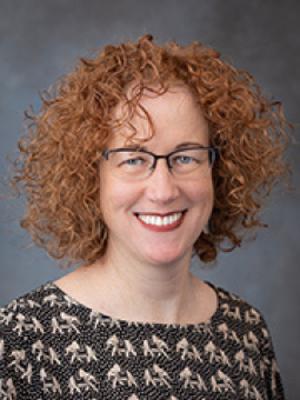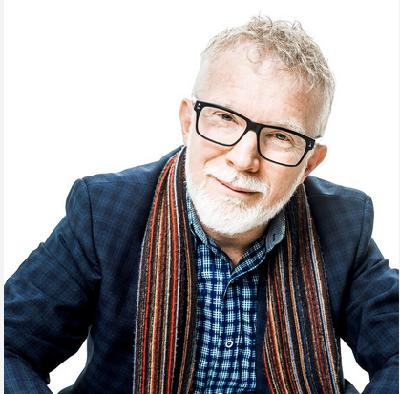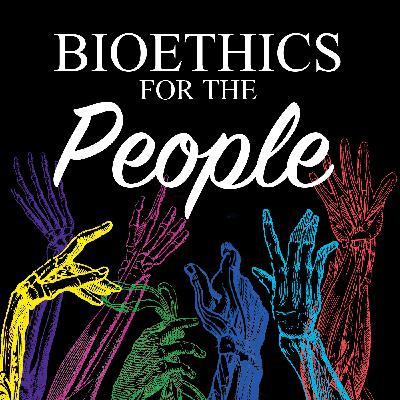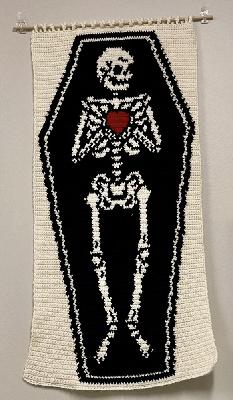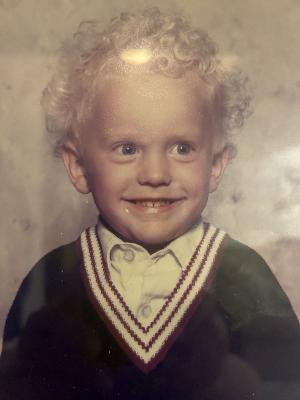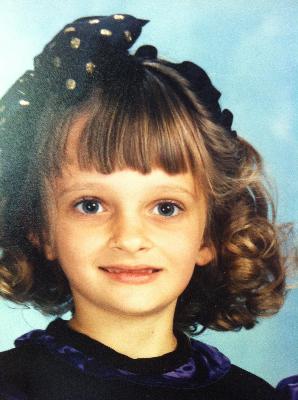Discover Bioethics for the People
Bioethics for the People

86 Episodes
Reverse
In this episode, Tyler and Devan talk with Ray Moseley and Marcia Brown, both from the University of Florida School of Medicine. Ray and Marcia talk about their pilot project that looked at how accurately an AI tool can predict the medical decisions of a patient, compared with a family member or surrogate. The outcomes are surprising.
In this episode Drs. Kostick-Quenet and Blumenthal-Barby discuss their research on LVADs and AI and their thoughts on how to use AI in clinical ethics.
In this episode we talk with Dr. Benjamin Collins about combating bias in AI.
In this episode, focused on the utilization of AI and Machine Learning in healthcare, Tyler and Devan talk to Teresa Fair-Field, OTD, OTR, who is part of an NIH-funded team developing "Emma Baby," a smartphone application designed to detect critical motor markers in infants during their first year.
Read More Here:Fair-Field, T., & Modayur, B. (2025). Clinical validation of an abridged AIMS: Streamlining motor screening in the first-year infant. Early Human Development, 202, Article 106207. https://doi.org/10.1016/j.earlhumdev.2025.106207Fair-Field, T., & Modayur, B. (2025). Clinical validation of an abridged AIMS: Streamlining motor screening in the first-year infant. Early Human Development, 202, Article 106207. https://doi.org/10.1016/j.earlhumdev.2025.106207
In this episode we interview Dr. Lukas J. Meier about an algorithm he helped develop to help solve clinical ethics dilemmas.
In this episode we talk with Dr. Jeffrey P. Bishop about how AI will shape our minds and habits and how we need to rethink medical training in light of the promises and perils of AI in health care.
In this episode, we chat with Drs. Ami Palmer and David Schwan to discuss the wild west of mental health and wellness apps using AI.
In this episode Devan and Tyler discuss the most common ethical concerns raised in the field of AI and clinical care.
In this episode Devan and Tyler discuss the current uses of AI in clinical medicine.
In this episode, Tyler and Devan are joined by Dr. Holland Kaplan to unpack a case of sudden-onset psychosis. We discuss the complex interplay between patient autonomy, surrogate decision-making, and the nuance of invasive interventions over a patient’s objection. How do we assess decision-making capacity in an acutely altered state? What happens when a surrogate’s wishes conflict with what clinicians believe is medically necessary? And where should the line be drawn between beneficence and coercion?
Devan and Tyler sit down with Dr. David Shalowitz to unpack the ethical complexities surrounding the claim that clinical trials offer the best care for cancer patients. From the “therapeutic misconception” to the burdens and risks of trial participation, we explore what it means to balance patient-centered care with the pursuit of scientific advancement.
David Shalowitz, “Are Patients with Cancer Care Best Managed in a Clinical Trial?” JAMA 331 (24): 2077-2078.
In this episode, Tyler and Devan are joined by Dr. Peter DePergola to explore policies addressing non-beneficial treatment requests, medical futility, and inappropriate treatment demands. Dr. DePergola, the Shaughness Family Chair for the Study of the Humanities at Elms College, is an Associate Professor of Bioethics and Medical Humanities with joint appointments in Philosophy, Religious Studies, and Biomedical Sciences. He also serves as Director of the Undergraduate and Graduate Bioethics and Medical Humanities Programs and Executive Director of the Saint Augustine Center for Ethics, Religion, and Culture.Dr. DePergola shares insights from his recent policy revision work, focusing on refining the concepts and language surrounding non-beneficial treatment, futility, and related ethical challenges in medical decision-making.
In this episode, Stephanie Van Slyke helps us to understand DNR orders and her success in helping clinical staff understand what they mean.
In this episode Steven Squires describes an intervention into ethics education that has taken off!
In this episode we discuss another success story with Dr. Jennifer Bell who helped her medical center think about how to ration scarce CAR-T Cell cancer treatments.
Transcript 0:00 Welcome to this episode of Bioethics for the People, the most popular bioethics podcast on the planet according to Grandma Nancy.I'm joined by my Co host Doctor Devin Stahl, who dutifully completes the same 5 New York Times puzzles every single day. 0:17 And I'm joined by my Co host Doctor Tyler Gibb, who if he weren't here right now, would probably be golfing.All right, Tyler, so we have another success story to share today from a fellow Canadian.Yes, I love Canadians, of all the nationalities, they're my favorite. 0:37 Have you ever, I don't think you even talked about this in the podcast we did about you, Tyler, is that you're Canadian?Well, kind of Canadian.I was born there.I can have dual citizenship if I ever fill out the paperwork.Oh, you've never filled out the paperwork?No, it's like $125.00 fee and I've never never actually filled it out, but. 0:55 That says something about your like extreme optimism about our political situation that you've never like in the back of your mind, Go said maybe Canada might not be such a bad choice for me.Yeah, maybe this year will be the difference maker though.We'll see.OK, so we've got a Canadian with us. 1:10 Well, I'm actually dual citizen.Yes, dual citizens are the best.I grew up in Georgia and now I live in Toronto, so.All right, so we've got Jennifer Bell with us, who's a senior bioethicist up north of the border, and we'll let her introduce herself. 1:27 Yeah, well, I I already told you more about me than I think I tell the average person.So I am.I won't start from birth.I'm currently a senior bioethicist in Toronto, ON and Director of Bioethics Research.I'm at the University Health Network and I'm affiliated with the University of Toronto. 1:47 Very cool.So, Jen, what does your day-to-day look like?Well, I mean, actually it's changed a little bit because I just was awarded a fellowship actually in AI and compassionate healthcare, but previous to that, which I just started a couple of weeks ago.So I've been seconded to that and it's a research fellowship, but, but prior to that my, my day was very clinically oriented. 2:10 I mean, I provide clinical, organizational research and policy and education ethics across our organization.I primarily support Princess Margaret, which is our cancer hospital.But organizationally, I do a lot of work for the entire organization as it goes. 2:28 So, you know, day-to-day it's, I mean, as those of you who work in healthcare settings and our ethicists there and you're sort of beholden to what kinds of consults and questions come up and you can never really anticipate what those might be.So that's sort of exciting, but also a bit daunting because you know, you're called on to be sort of have knowledge about all these various areas. 2:51 But it's sort of a generalist in a sense, at this hospital at least, because I, again, serve a larger population than just the cancer system.So it could look very different depending on the day.But generally, I will be responding to a clinical consult, a bedside consult. 3:09 Maybe there's a policy coming through that needs an ethics perspective.Right now, we're in the midst of creating sort of AI protocols and procedures.And so there's a lot of opportunity there for ethics input on that.So, I mean, it really varies, yeah.And I know that Tyler has experience with this too, but I've been part of hospital systems that get like 1 consult a year, and then I've been part of ones that get more like 1 consult a day. 3:36 My guess is you're getting even more than that.So what is your typical load like?How often are you being called to consult?Yeah.Well, I should preface this.I'm not a sole bioethicist working in this network.Actually one of five others.So there's six of us.We're not all full time. 3:52 So me in particular, I have 3 days that I devote to practicing ethics in the healthcare in our, in our healthcare network, but I'm also paid to do research.I have a nice dual role, which is it's hard to come by, at least in Canada. 4:08 I don't know how frequent you have these opportunities in the States, but so my day, my week is actually split into normally it's changed a bit now because I've started this fellowship, but before this it was three days clinical organizational research ethics practice and then two days I had devoted to actually conducting research and bioethics. 4:28 I would say that's incredibly unusual.That is a lot of time for research.That is really cool.Yeah, yeah.And it's not grant funded either.So it's it is a permanent sort of part time research position, a full position in its entirety, but the research side is actually well as guaranteed as you can be. 4:47 That's cool.One of the topics that we're covering on this kind of series group of episodes is success stories.What we want to do is highlight some of the good work that clinical ethicists are doing.Number one, because they, I think clinical ethics and being an employed clinical ethicist is a fairly unusual type of position. 5:06 Most people don't know that this position exists, but it's easy to envision, you know, the worst case scenario or really terrible cases where an ethicist is useful.But sometimes those get sad and those get heavy.Those talking about those cases all the time. 5:22 So we wanted to talk about success stories.And so you have a success story that you are going to share with us.Yeah, Yeah, I do.And thanks.And it just, it just dawned on me that I didn't actually answer Devin's question about how many consoles we get.I I was leading into it and then and then digressed. 5:40 But as a snapshot, because we have, you know, almost 6 at the system varying kind of responsibilities to ethics within our service, we have around 350 consults a year.I don't know how to make sense of that necessarily.I mean, that's one of the questions of our, of our profession, of our discipline is how do you benchmark this? 6:00 But but yeah, we are a busy service, a very busy service.And actually the success story stems from an organizational ethics consults.So actually most of my work has tended to be at the Cancer Center and it's tended to be organizational in nature. 6:16 I think that might be because I'm there three days out of five and I'm just not, I'm not as present on, on the units walking around or participating in rounds as much as maybe I would be if I were there five days.I mean, I think that might be some reason. 6:32 But I have also just had a lot of uptake in terms of organizational ethics issues and leadership has brought me on to some of these issues and it's just kind of propelled from there.So the success story that I wanted to share with you all is an organizational, I'd say organizational ethics success story in the sense of success of being involved as an emphasis being included embedded I think in the process and the questions. 6:59 It was an important and still is actually an important issue that we're working through at the Cancer Center that, but that's the setup.It might be helpful to some of our listeners who might not be as familiar with the work of clinical ethicists to just describe briefly the difference between sort of a clinical ethics consult and an organizational consult. 7:19 I generally understand those as a clinical would more come from a physician or someone on the healthcare team, maybe even a patient, other family members saying like what's happening here doesn't seem quite right or there's an ethical dilemma I'm seeing at bedside versus an organizational question might be more like the process itself that we have some sort of policy that we have doesn't seem to be working for us. 7:40 So we need a higher level console that says we need to think about how our systems are running.Is that how you make that distinction?Yeah.I think that's a really, that's a really helpful distinction.I would have made something similar, but maybe not as eloquent. 7:56 Yeah, clinical ethics is more about direct patient care.We got consulted by all those parties that you just mentioned.Many people don't know, especially patients or public members that they, at least in our service, they are free to contact us for a consult.They don't need to pay for it. 8:12 So that's something we're always trying to strive for in our services to let people know that they can contact us, doesn't have to be the healthcare team contacting us.And then organizational, yes, just as you just described, I'm often involved in policy guidelines, anything that would sort of touch a systems level of how a practice might operate or a program might function that has ethical components to it. 8:39 I mean, lots of ethicists I know have been involved, for example, in informed consent policies in their institution.So that's a, a pretty typical 1.And I know, you know, we talk sometimes about these hybrid cases.My colleague Sally Bean has a great article describing hybrid cases where you might have a clinical ethics consult, a patient, a consult involving direct patient care. 9:02 I'll take an example from my own practice.We had a patient that was uninsured in Canada.We have public insurance, but it's only available to those people who have status in Canada, that being immigration status.And that's how we define uninsured or insured government provided insurance. 9:21 And so there's going to be some folks without that eligibility and don't have the access.So we've had many consults that arise during direct patie
In this episode we do a deep dive into the work and life of our co-host Dr. Tyler Gibb
You asked for it, so here it is… the “Who is Dr. Stahl” episode. We do a deep dive into the path that brought Devan to where she is today. How did she first get interested in Bioethics? Who were some of her most influential mentors? What is she currently working on?
In this episode Dr. Tim Lahey describes how he helped his institution curb violence against health care professionals.
In this episode, Dr. Becket Gremmels discusses a success story involving a pregnant teenager and her parents.


